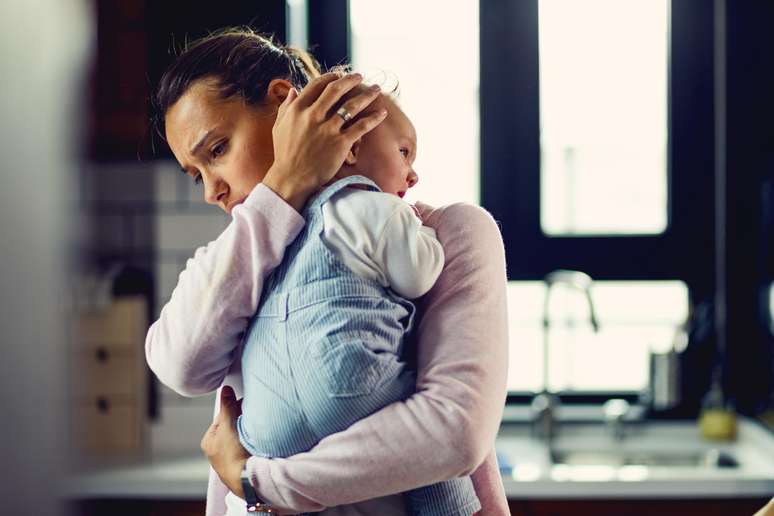The differentiation between frames is not always clear and obvious; Know when it’s time to ask for help
The birth of a child is a time full of intense emotions for mothers. Therefore, it is normal that, in the first few weeks after giving birth, many women experience changes in mood and even feel sadness, anxiety and distress.
While these feelings are often associated with “baby blues,” a temporary and relatively mild phenomenon, in some cases they can turn into postpartum depression, a more serious and long-lasting condition.
Second the Ministry of Healthone in four women in Brazil experience symptoms of depression in the 6-18 months following the birth of the child.
But how to distinguish between these two emotional states? In an interview with Earth you, Cinzia Braga, psychiatrist, explains.
Symptoms differentiate conditions
According to the professional, baby blues are characterized by mood swings, irritability, anxiety, easy crying, tiredness and even a certain resentment towards motherhood. However, these symptoms, although they cause psychological distress, generally do not prevent the mother from caring for the child and being present.
In postpartum depression, symptoms tend to be more intense and persistent, with marked dysfunctionality, intense difficulty caring for the baby, self-deprecating thoughts, or even thoughts of death.
“Baby blues begin a few weeks after birth, with symptoms gradually diminishing with increased familiarity with the new situation. Postpartum depression can begin even in the first weeks after birth and, if untreated, last longer,” explains the doctor.
The expert says baby blues are often associated with abrupt hormonal changes, sleep deprivation and adjusting to the new reality of motherhood. Risk factors for postpartum depression include a history of depression, lack of social support, marital stress, obstetric complications, and genetic predisposition.
“Baby blues generally do not require specific treatment beyond emotional support and rest, however medications can be used to relieve symptoms, and psychotherapy is always welcome. As for postpartum depression, in addition to psychotherapy, psychiatric monitoring is necessary, as well as support from close family members,” says the psychiatrist.
Seeking help is essential
The doctor emphasizes that the differentiation between the conditions is not always clear and obvious. Both conditions present difficulties, but postpartum depression can have more serious consequences for the mother, baby and family, with significant damage to maternal bonding, difficulties in the child’s development and risk of violence.
“Timely seeking professional help ensures adequate care, avoiding complications and promoting the mental health of the mother and family. It is important to advise new mothers that if mental suffering occurs, even if mild, to be evaluated by a professional in the sector”, concludes the doctor.
Source: Terra
Ben Stock is a lifestyle journalist and author at Gossipify. He writes about topics such as health, wellness, travel, food and home decor. He provides practical advice and inspiration to improve well-being, keeps readers up to date with latest lifestyle news and trends, known for his engaging writing style, in-depth analysis and unique perspectives.








